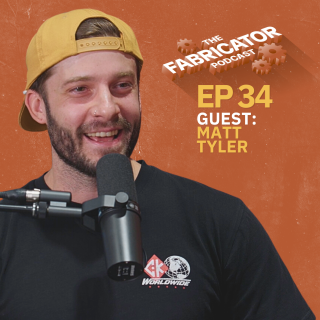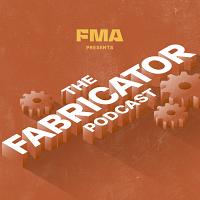Fabricating doors, blending welds, and pricing jobs with Matt Tyler Designs
After starting his metal fabrication career in 2008 and working through some personal demons, Matt Tyler came out on the other side with his own business: Matt Tyler Designs.
In this episode of The Fabricator Podcast, Matt discusses the growing pains of small business ownership in the Dallas–Fort Worth metroplex and specializing in architectural metalwork, with a focus on engineering and fabricating doors, windows, and metal framing. He also talks about his blend course, where he offers tips and techniques on blending weld joints. He also shares his plans for the future, which include expanding his skills and building high-end furniture.
Host Dan Davis and Josh Welton also chat with Matt about Blink-182, fabricating alien spacecrafts, creating video content, and the art of pricing jobs.
Email us at podcast@fmamfg.org with any comments, questions, or suggestions.
In This Episode
Learn more about FMA's Coil Processing Workshop and Tours
Learn more about Nuts, Bolts & Thingamajigs Awards Gala.
Check out Matt Tyler Designs
Check out Matt Tyler's weld blending course
ABOUT THE FABRICATOR PODCAST
The Fabricator Podcast brings you conversations with people in manufacturing who make things out of metal. We speak with manufacturers, metal fabricators, welders, job shop owners, small business entrepreneurs, artists, marketers, educators, and more. Host Dan Davis also goes beyond discussing just manufacturing and the skilled trades, and chats about pop culture, current events, food, music, movies, comedy, and, of course, robots. The Fabricator Podcast is presented by the Fabricators & Manufacturers Association.
Host: Dan Davis
Producer/Editor: Gareth Sleger
Video Producer/Editor: Brandon Geier
Ad writer/spokesperson/social media: Sara Spring
Additional video editing: Dana Wiker
Graphics: Billy Kulpa
Marketing support: Elizabeth Gavin, Mary Diamond
Sales support: Andy Flando, Amy Hudson
Web support: Mike Owens, Jared Carlow
Additional support: Ed Youdell, Maurine Semevolos, Lincoln Brunner, Tim Heston, Rafael Guerrero, Josh Welton, Darla Welton, Amanda Carlson-Hicks, Callie Check, Rick Lehnhardt, Judy Steinbach.
Where to listen to The Fabricator Podcast:
Follow The FABRICATOR:
- YouTube
TRANSCRIPT
Dan Davis: Saucer-like UFOs are akin to the PT Cruiser of American automotive.
Josh Welton: Retro futurism.
Dan Davis: That's it. I think you've nailed it.
Matt Tyler: I hope the PT Cruiser doesn't come back though, I will say that.
Josh Welton: 100%.
Dan Davis: Welcome, Matt Tyler, voice of reason.
Sara Spring: It is almost time to celebrate manufacturing's finest contributors at the Annual Nuts, Bolts & Thingamajigs Awards Gala. This fun and exciting evening supports the next generation of manufacturers by raising funds for scholarships and educational programs. Help build tomorrow's skilled workforce by attending or participating in the online silent auction. Bid on artwork and other unique items throughout the evening from anywhere. Get all the details at gala.nutsandboltsfoundation.org.
Dan Davis: All right. Hello, Dan Davis with The Fabricator podcast. I'm joined today by Josh Welton.
Josh Welton: Hello.
Dan Davis: Hello. We'll be talking with Matt Tyler, of Matt Tyler Design. Believe me, it's more complicated than it looks. He's going to talk about the way he's come up as a fabricator and his business where he is doing, recently at least, a lot of doors for clients. And I was asking Josh, have you ever done anything in terms of a framing for a home or something like that?
Josh Welton: Not for a home, no. I've done some framing. I've done some swinging doors on toolboxes that I've just put together for utility and not really to look great or anything like that, but they're tricky. And I think that even talking through the process, he'll talk about some of the things that if you don't have the angles right, people look at a door and they think it's simple. It's this thing, you open the knob, you turn the knob, it's on hinges, you open it, you walk through. But there's a lot that goes into the fit and finish and how it opens and how it feels, and when you're trying to do the level of work that he's doing, that stuff is critical and how. So no, I haven't, long answer.
Dan Davis: But it's fun hearing him. You're always a big proponent of people finding their own style-
Josh Welton: And he did. When he was talking about the French doors and the bottom latches and he's like, "At first I didn't know I needed them, and then I just came up with a design on my own," that's so much more fulfilling, and then you might come up with something that changes the industry.
Dan Davis: And his whole approach is kind of seamless.
Josh Welton: Oh yeah. The finishing, the blending.
Dan Davis: His blending of anything-
Josh Welton: It's ridiculous.
Dan Davis: ... his skills there are really sharp.
Josh Welton: Once you listen to this, if you go to his social media, which we shout out in the podcast, his work's phenomenal. He does courses on things like blending and other techniques, and his aesthetic is so cool. But what he does, like when he talked about doing the rougher ones for his previous job and then working up to doing the finer ones, it's really easy when you're doing something for yourself, being like, "It's good enough." So you got to really put that extra. He's building stuff for his home and he said he focused on making it better and taking the time with it. For me, that's always been a hard thing is taking that time to do it right. For me, usually my stuff is just cobbled together, so that kind of mindset is what you need to do what he wants to do.
Dan Davis: Right, and I think that's how customers end up coming to you-
Josh Welton: 100%.
Dan Davis: ... because word gets out that they can expect quality.
Josh Welton: You do quality work and you're going to get rewarded because not enough people do work at that level.
Dan Davis: I think you'll enjoy this episode. Some random shots of alien discussion, which Matt seemed very perplexed by. But nonetheless, we kept moving forward and it ends with a mention of a rattlesnake in a cougar. So hang in there until the end. I think you'll enjoy it. See you.
Sara Spring: FMA's coil processing workshop heads to Toledo. During this two-day workshop, you'll connect with industry colleagues and gain insight into your toughest processing challenges. The small group setting includes facility tours for you to see equipment in action and discover new solutions for cutting, splitting, leveling, safety, and more. For more information and to register online, please visit fmamfg.org. And now, back to the episode.
Dan Davis: This is his friend, our friend, a friend.
Josh Welton: Our new friend. new friend. Officially a friend of the podcast.
Dan Davis: That's awesome. Matt Tyler?
Matt Tyler: Thank you. Thank you for having me.
Josh Welton: Is that a question.
Matt Tyler: Matt Tyler Designs.
Dan Davis: I'm always saying it in a question because I'm not trusting myself to know.
Josh Welton: Matt Tyler? It's very hard to pronounce.
Dan Davis: Maybe he pronounces it some other way, I'm not quite sure.
Matt Tyler: You had it. You were spot on.
Dan Davis: See, Josh is throwing me off my game-
Josh Welton: I'm sorry. I Joshed that up.
Dan Davis: ... which is very easy to do. All right. Furniture, art, describe your business to us and how you got involved with it.
Matt Tyler: It's custom fabrication, and I'd say it's a mix of furniture and architectural metal work. And I am about one year in of being full-time on my own, and it took me a few years of the side hustle game to get to that point, but probably I think I was 14 years in to working in the industry in other companies to be able to actually make that jump and have just enough tools to be able to do it.
Josh Welton: What were some of the jobs you held beforehand that got you to this point?
Matt Tyler: So the first one was seven years, and that was sheet metal shop. And so I got to do a little bit of everything from being there. So one of my main jobs was a CNC operator, and so I was doing that. I got to drive, drive with trailers, operate the ironworker and shears and a little bit of everything. Got a little bit of taste on leading other guys. I was kind of a mess back then. Not kind of a mess, I was a disaster back then, and my boss should have fired me many times and didn't very graciously. And luckily I did end up turning my life around, and he could see that in me that, "Let's just keep him around."
Josh Welton: That's a good boss.
Matt Tyler: "There's something in him that wants to change"-
Josh Welton: That's a leader.
Matt Tyler: ... but there were many Mondays called in sick, a couple of weeks that were called in sick. So I was there seven years. From there, the next one was custom furniture, and that was the first time I ever discovered what custom furniture even was, kind of almost by accident. Saw a buddy's Instagram page and was completely inspired by it for the first time because before I didn't enjoy-
Josh Welton: Who's your buddy?
Matt Tyler: My buddy-
Josh Welton: Give him a shout out.
Matt Tyler: ... Jacob Trish. Revival Supply Co was the name of the company. And so it was this mix of raw steel and reclaimed wood, that's what we were doing. I worked there for two and a half years. They moved to Colorado, I got another job at Stash Design, which was pretty much the same thing. It was a lot of furniture, and I was there for three and a half years. Then soon after we moved out to the country, got a few acres, and then I finally had my own shop. So that was huge for me.
Josh Welton: Congratulations.
Matt Tyler: Thank you.
Josh Welton: Where do you work out of or what area?
Matt Tyler: I'm in Bridgeport. Or if you go to Bridgeport, then you're going to drive another 25 minutes out in the middle of nowhere and that's-
Josh Welton: Is it Connecticut? Bridgeport-
Matt Tyler: Texas. Sorry, Bridgeport, Texas.
Gareth Sleger: This is day four of Fab Tech, so everyone's brain is fried.
Josh Welton: Texas is big.
Dan Davis: Bridgeport.
Josh Welton: I think Texas is only a few miles from Connecticut.
Dan Davis: It is. It's right across-
Josh Welton: According to maps I consult.
Dan Davis: It's right across the river. So would you have found your way if that early boss probably didn't stick with you? Do you think back to those days about that?
Matt Tyler: Man, I don't know. Well, the path that I was going towards was prison or a grave. That was really where I was going. Heavy drug use, alcohol, and I pretty much knew that. I knew. I was getting arrested and it was looking real bad for me, and it was really a spiritual change that took place that I just kind of gave up. I knew, it was just so obvious that I was either going to go to prison or I was going to die, and so something had to change. And so that was when I gave my life to Christ and things started turning around, and I started going to church again and all the stuff that I wanted no part of. I grew up that way, but rejected it and definitely rebelled and didn't want anything to do with all that stuff, but that was really where the change really started for me.
Josh Welton: Right on.
Matt Tyler: And then it was a very long road of living these two lives of the party scene and then my new life. So that was stage that I was in for those seven years, and so it was very chaotic.
Josh Welton: Yin and yang.
Dan Davis: And then you finally committed to the straight and arrow?
Matt Tyler: Yeah. I think it was like 2016, it was like something just broke. Something changed, and it was like all those years of the patterns of addiction and all that stuff of wiring the brain finally kind of got rewired, and that was when things really was going in a good direction, when I started that first furniture job.
Josh Welton: That's a process because those things become hardwired and then that seven years is like you're trying to unwire that it doesn't happen overnight. It's not a cold turkey kind of thing.
Matt Tyler: Oh yeah. And it felt like it was never going to happen, and I was just-
Josh Welton: It's incredible you came through that. That's admirable. That's awesome.
Matt Tyler: Thank you.
Dan Davis: Was the change of scenery helpful when you start the new gig, or did that happen before you maybe started the new job?
Matt Tyler: Yeah, it was before. It was before. So that took place, and then that's really when I found the... I had come out of a really bad back injury, and so I didn't even think I could do that job because I still could barely lift anything. And so it was kind of a risk for me to take that job because I'm here lifting steel every single day-
Josh Welton: One little wrong move and-
Matt Tyler: And you're back to not being able to walk at all.
Josh Welton: ... that's sketchy.
Matt Tyler: And so I was just coming out of that, about a year of rehab.
Dan Davis: Did you enter that first custom furniture job with skills that allowed you to hit the ground running or did you kind have to learn maybe some new skills or perhaps the way they do things there?
Matt Tyler: Well, the previous job was really what set me up and made me feel qualified because there's no way I would've been qualified for that job that I really wanted because I did not enjoy the sheet metal job. It was purely-
Josh Welton: Necessary.
Matt Tyler: ... I'm just saying yes. I am being faithful with this job even though it makes no sense. I was going to be a musician and an artist and that was my road for my life. And so then I look back, I was like, "Wow. All those years, I built all those skills." Year after year of doing that repetition and getting the reps in, that made me feel qualified for that job. But I did go into that job with very little welding experience, and so I still was pretty intimidated and still had a lot to learn, especially when it came to furniture, which was new to me.
Josh Welton: There's a lot of those skills that transcend. Once you figure out what metal does and what it needs, suddenly things open up in your mind and there's kind of a transition, or not a transition, but it becomes easier than if you were just starting on that once you get to finishing. And I love your finishing work.
Matt Tyler: Oh, thank you.
Josh Welton: I was watching videos this morning. Years of doing whatever with sheet metal, once you go into doing something like that, you understand how metal works. You understand way it moves, the way it wants to move, whatever. It's just I feel like that once you get your foot in the door and you learn some of those basic things, if you really have it in you, and not everyone does. Some people, they're not going to get it. But once you get in the door and start getting those simple things, I feel like it's way easier to do the harder things, if that makes sense. I just rambled, sorry. That was nonsense.
Matt Tyler: No, no, it was great because it demanded really tight tolerances, it demanded real attention to detail or else it was obvious. If you're breaking parts, it is just not going to fit.
Josh Welton: There's no way to hide it.
Matt Tyler: You're going to see a big gap and you just got to throw it in the scrap bin and start again.
Josh Welton: Got to be precise.
Matt Tyler: So it's really your only option, and so that definitely laid the groundwork for being able to have that attention to detail, but also just knowing, even if it's just doing simple layout work with a combo square. I do that every day.
Dan Davis: Was that a good place to hone your welding skills with that type of custom work, in the sense that you're going to end up cleaning up anything that really didn't look good or-
Matt Tyler: As far as the furniture went?
Dan Davis: Yeah.
Matt Tyler: Well, what I'm doing now is very different from what that furniture shop was. So it was a lot more rough, kind of industrial-
Dan Davis: Oh, I got you.
Matt Tyler: ... and so really, you're just knocking the weld off and just going to move on. And so it really was me taking that on myself of seeing what's possible and seeing what other guys are doing, that that's where I decided that's what I was going to do right on. And so it was just me on my own trying to figure that out and figure out how to do it. And I wish that I had somebody around me that knew how they could teach me, but it was really just me using mostly Instagram and some YouTube and studying. Doing a lot of studying, a lot of screenshots.
Dan Davis: You think a lot more people share that story?
Josh Welton: I do. And it's not the exact story, but I underestimated the power of YouTube when I was younger. I was trained in a traditional manner and I thought everyone should be trained similar to that and I wasn't correct. I was wrong. I still think it's critical, especially if you're doing structural welding, that you're doing certs and things like that just to know what it's like. Even just a regular welder, just do one destructive test just to see what happens because it's going to surprise you. But no, his story has elements of a lot of stories where metal working or working with your hands is almost, I don't know what you want to call it, but it's like an antidote for everything else. It's something that you can pour your heart and soul into and it makes you want to be better. And then with having varying backgrounds, we don't do the 30 and out anymore. Nobody's looking for a factory job to retire when they're 65 and going to when they're 25, so you see a lot of people that are bouncing around from shop to shop and that it might suck for the shop, but it's great for the worker because they're learning how to work with different people, work in different systems and then do literally different hands-on work. So then when they come out of it and they're like, "I want to do this on my own," they've had that awesome training, basically. It's like going to school pretty much. So you do see that a lot, especially in that 30 to 40 year old range, you see a lot of people who have spent their 20s just kind of busting their at different jobs and shops and doing these different things. And then with social media especially, you can market yourself, so you don't don't need to spend a bunch of money on marketing and putting ads out and things like that. And with his videos, they're incredible. You show a process, you show how to do it and people are attracted to that, and then more people become attracted to your brand and the kind of work you do, and then all of a sudden people are in the position to buy those things.
Dan Davis: Has welding become that for you, that avenue for your creativity?
Matt Tyler: Yeah. Before it went from drawing, painting, the things are a little bit more easier to get your hands on and then to the welding fabrication stuff is an expensive-
Josh Welton: Version of that.
Matt Tyler: ... and so it took a long time to get there, but it's really the furniture and the creative side where I get to take those hands-on skills, combine it with the creative and create something beautiful. And that's what brings the passion out of me-
Dan Davis: 100%.
Matt Tyler: ... and what makes me come most alive in that sort of avenue.
Dan Davis: So you're still doing hand drawing of your projects before they begin?
Matt Tyler: I was and about a few months ago, once I really started getting projects coming in, I could tell it was not sustainable to keep doing the hand drawings. And so I switched over to CAD, I'd say especially the last month. I made a transition over to CAD and it is just crazy how much it just pushed my design forward, pushed how professional stuff looks.
Josh Welton: Did you have experience with CAD before that?
Matt Tyler: No.
Josh Welton: So you're just teaching yourself?
Matt Tyler: I had failed attempts is what I had.
Josh Welton: Gotcha, gotcha.
Matt Tyler: I just kind of tried-
Dan Davis: At other people's, at other employers?
Matt Tyler: No, just different software. I've tried to learn it and it was one of those things where I was like, "I need to learn this," but it just wasn't fun to do it and it was just purely discipline. You just have to sit down and make myself do this like you're learning an instrument so that you can write the song. And so that was that process that-
Josh Welton: That's a great way to put it.
Matt Tyler: ... I kind of procrastinated and I wasn't willing to put in that time and just got frustrated with how overwhelming it felt and then just whatever, I'll just keep drawing. We'll just make the drawings look better.
Dan Davis: What CAD program were you using?
Matt Tyler: So I started on Shapr3D, which was super easy for me to get going. And then after about a month of that, I realized that that wasn't going to work, at least not on a certain scale. It had some limitations that Fusion 360 really met, and so I'm transitioning over to Fusion. And so I'm kind of using both right now.
Dan Davis: Gotcha, gotcha. So what got you ready to go out on your own? You had mentioned tools are one thing, but two years I think you probably mentioned before you were ready to start your own gig.
Matt Tyler: It was a few years of staying late in the shop and the hardest thing was just learning how to price jobs, which is still hard.
Dan Davis: It is.
Matt Tyler: And I hear many other people say that it's kind of always hard. You do get better at it and I've definitely gotten way better, but I really screwed up at the beginning. The first job I ever took was for these giant planter boxes. I didn't charge profit. I didn't know you're supposed to do that. I just messed up everything about the project, ended up having to hand it off to somebody else, and it was a little while until I took on another one. It was a few years of just understanding what that process looks like of somebody wanting to hire you to do a job, and what are the questions I ask? The whole process of the business side that you have to learn, that you can be really good at the building side, but there's a whole other-
Dan Davis: Business side and market-
Matt Tyler: ... aspect that you just have to learn, or your business is just going to shut down really, really quick.
Josh Welton: Even with sculpture, that's the difficult part. I just keep raising prices until people don't pay them.
Dan Davis: I know in the commercial area, trying to capture that knowledge, that person leaves the company and they can be high and dry with looking for the right kind of estimating and quoting help.
Josh Welton: Anybody that's good at what they do now, they don't stay at shops salon because you don't get paid. It's impossible to pay the help what they deserve if they're really good, so they go out and do their own thing.
Dan Davis: They try to lean into automation or software to try to fill that gap, and that's not always as it's supposed to be.
Josh Welton: There's a lot of machines sitting unused in factories across the US because they just didn't hire the people. They thought they could just set it up and use it and now it's in a box in storage. Go ahead.
Dan Davis: I'm sorry. Where are you with your tools in your shop?
Matt Tyler: I still feel pretty bare bones. I do have a fixture table, got a sick deal on a BuildPro table. It was like a $3,500 table I got for $500-
Dan Davis: There you go.
Josh Welton: Nice.
Matt Tyler: ... of of one of those, like a Facebook marketplace. Got a crazy good deal on that.
Josh Welton: I got that is good.
Matt Tyler: I have an Everlast welder and I ended up financing it. I was determined to learn TIG and at the time, I was reading some Dave Ramsey stuff and so doing anything on credit was just like, "No, you can't do this." And so I wasn't sure if it was the right decision, but I did it and I'm very glad I did.
Josh Welton: It's the right decision.
Matt Tyler: And so we got the toolbox and clamps and an old, janky drill press that could catch on fire, but hasn't.
Josh Welton: Just keep a big glass of water right there just in case.
Matt Tyler: It'll have a spark come out the side of it, but the switch doesn't work, so you plug it in to turn it on.
Dan Davis: Note to all dual press manufacturers.
Josh Welton: Do you have a mini fire extinguisher on a holster or something on your belt?
Matt Tyler: I like that. I do have a few in the shop, so they are strategically placed. So I did recently get the bandsaw was the recent big upgrade I had because I was using some chop saws and it just wasn't a fun time. That and an angle grinder was how I was doing my cuts. So I got a horizontal Grizzly bandsaw with the roller table set up. I did the Craig jig. It was kind of meant for woodworking, but you can set your stop and if you're doing multiple cuts, you can just move it over, flip it over.
Dan Davis: So you're taking a lot of frustration out of the process?
Matt Tyler: Oh yeah. And it's so much time that you're not throwing the tape out, measuring, marking. It'll be a huge time saver. I still need to set that up, but I do have it in the box.
Dan Davis: That's awesome. What type of materials are you typically working with?
Matt Tyler: Mostly mild steel. So it was almost for the length of when I started furniture, it was mostly two-inch square tubing, 14 gauge is definitely the most common. And as I'm recently just pushing my skills forward, I've been trying to get away from that and think more outside the box, which has me using more sheet goods and laser cutting. The majority of my stuff now when I design something, I'm going through that process of laser cut and maybe it's tab slot, maybe it's getting broken, so I'm shifting a little bit.
Josh Welton: How do you finish, how do you protect the surface of the mild steel and furniture?
Matt Tyler: Usually I'd say the go-to is powder coat. If you want to go-
Josh Welton: Just do a clear powder coat?
Matt Tyler: Yeah. If you want to go real affordable, it's a Rustoleum can. My first furniture job, that's all we used and you just try not to make it drip. It did drip sometimes, but clear powder coat is very common. I do, I've been looking way more into the patinas, like waxes and oils and then the blackening process. It's something I really haven't done much of, but it's something that I need in my arsenal just to be more well-rounded.
Josh Welton: It's something I've been trying to experiment with too, just to get different. I love the aesthetic of raw metal, and how can you bring that out in different ways and still protect what you're doing? That's super cool. Your videos, the aesthetic of the sound, how did you come? Because it's awesome.
Matt Tyler: Oh, thank you so much.
Josh Welton: And everything's different, but it all blends, it all fits with each other. How did you come up with that kind of style?
Matt Tyler: I would say years of just doing it. That's kind of, I don't don't know, the cliche of just doing it a bunch. I just did it a lot for years just for fun. I really always did it for fun and I really do enjoy it, and I would just do it on my phone and I would be working. When I was working for other people, maybe I should have not done this as much, but I would set up my phone and take videos. I didn't get in trouble for it, but I probably did a little bit more than I should have. And then once I went off on my own, I could really run with it and I got a tripod. That was when things really went to the next level, was just getting a little tripod so I could set up my shots and visualize it. So I started out editing on my phone and using InShot, and so I would just use a music that was in the program. Then I started using my computer and so I'd edit in Premiere Pro, and I had a Academic Sounds subscription and so I was getting much better music.
Josh Welton: Gotcha.
Matt Tyler: So I think it's just the music I like, is that electronic-
Josh Welton: It's got a great vibe.
Matt Tyler: ... vibe. I listen to a lot of metal and other stuff but some things, I don't know, I think I could decrease the amount of people that want to watch the videos if there's a little too much screaming.
Josh Welton: I may have done that before.
Matt Tyler: Which you might enjoy, but-
Josh Welton: More appeal to everyone.
Matt Tyler: ... I wouldn't say it's intentional, it's just when I hear a song, it's just like my ear likes it and it just flows.
Josh Welton: What instruments do you play?
Matt Tyler: Guitar and bass.
Josh Welton: Right on.
Matt Tyler: Bass kind of by accident, because nobody else wanted to play it.
Josh Welton: Exactly.
Matt Tyler: That's when I started bass. But I did fall in love with it.
Josh Welton: I played bass a little bit when I was younger, I was never any good at it. I love guitar. I can't really, my wrists don't work anymore, but that's awesome. That's cool. And you were talking about Tom DeLonge. Are you still a huge Blink-1822 fan or was that-
Matt Tyler: I haven't listened to them as much lately. I'd say my tastes have change. Every now and then, I will come back and just see what they're up to, and it partially seems like they never age, especially Travis.
Josh Welton: Ridiculous.
Matt Tyler: I feel like Travis still looks exactly like he did way back when.
Josh Welton: When Tom DeLonge came out and we started talking about aliens, everyone was like, "You are insane." And then it turns out he was actually talking to legitimate people and doing it the right way, and there's aliens, guys. I don't know. I was a little skeptical at first, and then he was on Joe Rogan and he was talking about these different government officials and this and that, and everyone in the audience was like, "He is so full of shit." And then it comes out that no, he was really talking to these congressmen and politicians. That's pretty fascinating. Yeah,
Matt Tyler: He really went down the rabbit hole.
Dan Davis: Wait until you see who's opening up for them on the next tour? Aliens.
Josh Welton: I wonder what aliens metal craft, if they have alien fabricators or if it's there, they think about it. I just did a visual on a not visual medium.
Gareth Sleger: Well, at some point, they had to build up to that technology, right?
Josh Welton: Yeah. Maybe they have antique metal working shops in space wherever they live, whatever planet they're on.
Dan Davis: I think the saucer may be their approach to retro.
Josh Welton: Retro? That could be. That's the reason they still look like that now, is because the old ones were
Dan Davis: Saucer-like UFOs are akin to the PT Cruiser of American automotive.
Josh Welton: The future retro, retro futurism.
Dan Davis: That's it. I think you nailed it.
Matt Tyler: I hope the PT Cruiser doesn't come back though.
Josh Welton: 100%. I still can't believe how well that-
Dan Davis: Welcome Matt Tyler, voice of reason.
Matt Tyler: Thank you.
Josh Welton: A funny story about that is the UAW had no problem with them making that in Mexico because they're like, "Nobody's going to buy that," and then it turned out to blow up and the UAW had egg on their face for that one. Even the material, they've got whole different minerals up in space, and elements and space welding.
Dan Davis: I don't think we can wrap our head around it, to be honest.
Josh Welton: I'm trying, but my head's not quite long enough.
Matt Tyler: We're getting closer over here, with the number of robots that are over here.
Josh Welton: Well, the other day, we were talking to Greg from Red Beard's Garage and he's like, "You go around the show and it's kind of unattainable, but it's cool to dream about the future." And I'm like, "Yeah, but this stuff that now we have 3D printers on our desk, that was unattainable 10 years ago. Everyone's getting CNC plasma cutters, that wasn't attainable for your shop 10 years ago." And now small businesses are getting cobots because they can increase their manufacturing time and not have to hire a bunch of people to do it. They can operate it themselves and set it up and it's the same thing every time.
Dan Davis: It's interesting to see just the amount of particularly those collaborative robots.
Josh Welton: They're everywhere.
Gareth Sleger: Are looking for anything at Fabtech particularly?
Matt Tyler: If you know anybody with a lot of cash they're looking to get rid of, there's many things-
Josh Welton: I was about to say, what's the wishlist? I would find you some sponsorships.
Matt Tyler: The wishlist. Let's see. Oh, so I'd say the biggest one would be laser water jet, if I had-
Dan Davis: All that's outsourced now?
Matt Tyler: It is. And I could have three and a half weeks lead time. And so something that I could build today and I could install it tomorrow, I'm waiting three and a half weeks just to get it cut. And then if it does get powder-coated, maybe that's another two weeks.
Dan Davis: Especially since you're working with all the tubing too. I'm sure that's even harder to find maybe where you are.
Matt Tyler: Yeah. It's like an hour to my metal supplier. And then there also, Coremark-
Josh Welton: This is very Connecticut.
Matt Tyler: Coremark is where I get my steal from.
Josh Welton: So I just got a fast cut CNC plasma table and I'll put you in connection with Russ and see if you guys can work something out. They're awesome to work with. They're great. And the cool thing is if you run into something, they're on-call 24/7 and your learning CAD is very helpful with that.
Matt Tyler: I've heard great things-
Josh Welton: They're awesome.
Matt Tyler: ... about that company.
Josh Welton: The guy at the top was a welder and started making plasma tables and really supports the industry a lot, so they're good people to work with.
Matt Tyler: I appreciate that. There's so many brands that have come out with them and you can kind of tell based on how they're constructed, and you can just tell-
Josh Welton: How much thought they put into it.
Matt Tyler: ... from looking at theirs that it's well done.
Josh Welton: They're solid. They're so good.
Dan Davis: Would they help you with your door work? Because obviously that's something-
Josh Welton: They help with everything.
Matt Tyler: Well, that one, the mill would be definitely handy for that. Yes and no. I don't know. I'm still using angle and flat bar. I've switched over to a whole new system on my doors, so I've no longer, all the stuff on my videos, it's all tubing.
Dan Davis: Oh, wow. Okay.
Matt Tyler: In the process of doing that, I saw how a lot of other companies are building them and the weaknesses or setbacks in using tube steel, from how efficient it is to thermal, just all that kind of stuff.
Dan Davis: No kidding.
Matt Tyler: Especially efficiency and how much time it takes to do it with tubing.
Dan Davis: So what's the alternative?
Matt Tyler: Well, there's several. One is that that I'm doing or settled on is making my own profiles, and so it's kind of a combination of angle and flat bar. And I spent a long time figuring that out. Many, many, many hours studying and making samples it not working, and had a lot of people help me along the way too, especially specifically on Instagram that we're able to answer questions.
Dan Davis: No kidding. That's substantial door compared to I would imagine just a normal door with tubing. Is that in essence a heftier product?
Matt Tyler: Yes, but it's also the sight lines are half of it, half the width. So you can get way smaller sight lines, but do really big openings at the same time and it's so much faster.
Dan Davis: Are you unique out there with this type of approach?
Matt Tyler: I wouldn't say unique, maybe in my area for sure. Some people are getting stuff shipped over from Switzerland, and so it's like a extruded, hot rolled profile that's specific to windows and doors. And so there's a bunch of different ways people are doing it, and with me just being a one man show, this is what just I think made sense-
Dan Davis: You're not ordering long lengths of materials from Sweden?
Matt Tyler: I considered that, and I went back and forth. And it was going to have to come over on shipping container and there was a minimum that you had to order, and it just wasn't seem to make sense for me right now.
Gareth Sleger: How'd you get into working or creating door frames? What was the process of working up to that? Because it's not easy, by any means.
Matt Tyler: So when we bought the property out here, which is actually this video right here we're looking at, I built a house or I built a door for the house that I've been building. And so I built the windows for our living room, and then I built in our master bathroom, there's a steel door with two sidelights and a top light. I had built a few doors before, but it was always pretty quick and rough, and I wasn't happy with the action and didn't really know what I was doing. And so this was my first time where I got to take the blending process that I had developed in just studying what other people were doing and do it the way I wanted to do it at the quality-
Dan Davis: I totally get that.
Matt Tyler: ... level that I wanted to versus before, you have to do it the way your boss wants. And so I really got the freedom on this one to do it my way. So it was like the complexity. I was looking at what lane can I go down where I can offer something that not everybody else can offer? And it was very obvious that doors and windows was a very difficult thing to do and required a high level of skill, detail and precision for you to have good seals it close and click the way that it should. And so that was another draw, was I knew that I was going to push my skills forward and just demand a lot of me. So it was like the challenge.
Gareth Sleger: But you worked at your house first before you worked on another.
Matt Tyler: And so I got to mess up on my house first, which I did.
Gareth Sleger: Did those work out for you?
Matt Tyler: Yeah. Yeah.
Gareth Sleger: All right, good.
Matt Tyler: The one video you had playing earlier, I installed it. I put the gasket in and the door didn't close because I didn't offset the door an eighth of an inch to account for the gasket, and so that was my first big lesson was to do that. So when I got to do a client's home, that got done, so it clicked the way it that it needed to click.
Dan Davis: That's awesome, to learn your own dime.
Josh Welton: What's the trickiest aspect that you've run into, a problem that you solved with the doors?
Matt Tyler: The trickiest, it's definitely I would say the locking mechanisms and just having-
Josh Welton: I watched this video earlier.
Matt Tyler: ... on a set of French doors, it has the-
Josh Welton: Oh wait. No, this is different, but similar.
Gareth Sleger: This is creating the locking mechanism, essentially.
Matt Tyler: Do what?
Gareth Sleger: This is just you creating the locking mechanism space.
Matt Tyler: Yeah. So for the French doors on the non-active door, I'm totally going blank on the flush bolt latch, I think that's what it's called. So you have one of the top and bottom, and I didn't even know that at first. I had never done French doors before and I was doing it for a client's home. And so I just was studying, figuring out how to do this, and there was no information on how to do that, so I just had to come up with what I thought the way I thought it should be done. So that was my first time doing that.
Josh Welton: So maybe that's better because you come up with a unique way, your mind's not poisoned by whatever design's been used for 300 years and you can come up with your own solution.
Matt Tyler: I'm kind of thinking, how can I design this to where I don't see welds? That's a big part of the approach.
Josh Welton: It's like the opposite of my ethos.
Matt Tyler: But that's kind of the way-
Josh Welton: I suck at blending, is probably why.
Dan Davis: So is your business gravitated more toward doors and windows?
Matt Tyler: It did. I kind of totally rebranded the company and my website and everything to do that, and then business just dropped. I just didn't have any more work coming in the door, so I was like, "Uh oh. I got to do something." So I opened it back up because I was still having people come to me for custom stuff, but I didn't want to do custom. And so I finally had to decide, well, don't let my ego get in the way. We'll just do this. We got to make some money. But that was the goal, was to just do that. And now, I don't know. I think I could get tired of the repetition of just doing doors, and I do enjoy the creative aspect of the custom where it's not always the same.
Josh Welton: The sculpture that you did, I'm not sure what you would call the style or the type, but I don't know why-
Matt Tyler: With all the angles?
Josh Welton: ... it just drew me in. Yeah.
Matt Tyler: Oh, thank you.
Josh Welton: The block.
Matt Tyler: Yeah, yeah.
Dan Davis: There it goes.
Josh Welton: Yeah, exactly. This right here.
Matt Tyler: I was basically just taking scrap material, looking at what scrap material was laying around that I can use, and so that was my design restraint was what I had to work with.
Josh Welton: Those are fun projects to do.
Matt Tyler: And it's important to work that skill because inevitably, you're going to have to do that.
Dan Davis: Looks like an awesome table.
Josh Welton: Show the finished one.
Matt Tyler: When I first did that, I didn't even have my blending process down. I was still kind of figuring it out at that point.
Josh Welton: Super cool.
Dan Davis: You've gotten to the point now where you put a course out there. Is that something else, like a natural extension on what you were doing, or is just a new endeavor?
Matt Tyler: That was a new endeavor. I was looking, there was kind of two layers to it. One, I really enjoyed helping people. And so through Instagram, I've had so many people reach out asking me questions, and so I've had the opportunity to help people and it was just rewarding for me getting to do that and it just felt good. And then I've also been looking at ways of how can I get out of the shop more and not be breathing as much welding fumes, metal dust from grinding and just the toll it takes on your body. And so I saw as far as longevity goes, I can't do this forever. And so let's look at ways that we can minimize and pivot and get myself doing, whether that's filming or editing in front of the computer. And so that was another aspect of doing the blending course and teaching in general.
Josh Welton: I love teaching it. It's fun seeing people just grow, when they come in and they're willing to learn and seeing the spark go off and all of a sudden it's like, "Okay, I got this." And then you look at their work a month later and you're like, "Yeah, they got it," that's super cool.
Matt Tyler: And as far as fabrication goes, specifically online, there's really no education out there. Even YouTube, there's some great YouTube channels, but as far as how to fabricate, there's not a ton out there. And so I also just saw a niche for me that I could come in there and fill that space, which today it's super uncommon that a market isn't already saturated. Oh yeah, so I started a YouTube channel and this was right before I started building our house.
Josh Welton: MattMakesStuff.
Matt Tyler: So before Matt Tyler Designs, it was called MattMakesStuff, and I've partly felt like it wasn't maybe super professional. I was working with these more professional home building companies and then people also kept spelling it wrong. Over and over again, they'd do one S and so I just kept having to correct it and I just got tired. I could just see it being a problem when somebody sends me an email and it doesn't get to me because they only put one S, so that was another reason why I decided to change it.
Josh Welton: I've always feared that probably some awesome person has wanted something from me and I lost so many emails that it's like maybe I was making something for, I don't know, NASA or something, but I missed the email.
Matt Tyler: It's like $1 million dollars is waiting for you-
Josh Welton: Exactly.
Matt Tyler: ... but you just didn't get the email.
Josh Welton: A giant project. "We Need You, Josh."
Dan Davis: The aliens have been trying to email you this entire time.
Josh Welton: Right. Darla, check my spam folders.
Dan Davis: Did you have the video editing chops before that, or is that something you learned along the way too?
Matt Tyler: Yeah, I've done it for a long time off and on. It was something I didn't do it consistent enough to get really good at it, so I still feel like I'm a beginner in it as far as videography goes.
Josh Welton: Did you do any of that when you were into music?
Matt Tyler: No. It kind of started with skateboarding, back way back when you had it up on your shoulder and it was like VHS tapes. We would do that for fun and just make videos.
Josh Welton: That's awesome.
Matt Tyler: And I've helped some friends out with their YouTube channels and stumbled my way through the editing, so it's something that I've intentionally been trying to get better, especially on the computer and doing it on Premiere Pro. And bringing that with also some after effects, which I've got to learn too, just to bring in more visual appeal, especially when it comes to YouTube side. When I was building the house, I realized maybe now's not a good time to do YouTube and build a house, so I just put that on the back burner. And so I only have two videos up, but I need to get back to it. And I've been filming, so I've been at least getting a library together so that once I start editing, I can have some stuff to put out consistently.
Dan Davis: Shelter's pretty important, so that's a good choice.
Matt Tyler: Yes, and we're getting towards the end of that process.
Dan Davis: That's awesome.
Matt Tyler: Yeah.
Dan Davis: Where do you see yourself going in the next five, 10 years?
Matt Tyler: One goal is to keep pushing my skills and build. I want to build ultra high-end furniture that is just the most beautiful stuff that-
Josh Welton: There's a market for it.
Matt Tyler: ... there is, which my skill level just hasn't been there. And so me learning, getting better, which was part of the blending. Me getting better at blending me, learning how to TIG weld. Machining is one of the things I've got to do next. It is just acquiring all these skills so that I can build that furniture or art or sculpture that's in my mind. So that's one of these goals that I'm pushing towards and pursuing. I know I can get there, I just got to keep getting better and have a larger wallet for the materials because some of this stuff is going to be brass-
Josh Welton: It gets up there.
Matt Tyler: ... and it's just going to cost so much money to build that that's another reason why it's something that, like I said, with painting, you can easily go out and just start painting, but some of this other stuff, it requires-
Josh Welton: A little dough.
Matt Tyler: ... a little more investment on the front end. So doing the furniture and just continuing building out my brand. So I did clothing for a long time, screen printing, and so I've designed my own T-shirts, and so that's another aspect. The teaching, continue to do more courses, the YouTube channel of just showing that process. So taking what I'm doing on Instagram and just it being a more long form of really breaking it down in the process. And so those are some of the big ones, and then a podcast as well.
Josh Welton: There you go.
Matt Tyler: We won't be competition, don't worry. Mine is more like design, craftsmanship, fabrication, and just broadly talking about that.
Josh Welton: I like it.
Matt Tyler: One element, which we were talking about earlier, was the idea of traveling and talking to really talented people around America, so that's something that I would love to do. There's so many incredible companies out there doing work that I could not do and I'm inspired by that I would love to share their story and how did they get there? I think there's a lot of people that deserve to get that showcase and be put out there.
Josh Welton: One of the things I've been trying to do, this show in particular, that I haven't always done a great job of is going to the small businesses, not the big corporations, and trying to get them coverage and trying to get the word out on what they're doing, because it's awesome, but they just don't have the money to spend on advertising like the big boys do. So trying to get their voices heard and what they're doing seems as important now as it's ever been, so totally. There's so many unique people who are just doing their thing and some of them are happy just being alone, but it's really cool to see you run into some of them and they do something that seems to be basic, and you're like, "You just did that in a totally different way." And that's one of the things I really enjoy about a show like this or just the Instagram community as a whole. We used to joke, everyone that got on there in the welding community used to be welders, and now they're all doing something different. Welding's opened up the door for them for 100 different possibilities, It's almost like a gateway drug sort of, or fabrication in general.
Dan Davis: There's a lot of aspects to the business. I think that's one of the things where we've discussed about the challenge of earning money, making a living, but yet it also provides plenty of opportunity to take a path and see where it goes-
Josh Welton: Absolutely.
Dan Davis: ... and actually maybe find that money you didn't find originally.
Josh Welton: I'm looking for it. Still looking for it.
Dan Davis: That's it. When we get that Bigfoot on tape, man, it's going to be all good.
Josh Welton: Exclusive. We'll do an exclusive FMA podcast. The thing is going to blow up. Everyone in the world's going to be listening.
Dan Davis: I don't know how the world would react to a carcass of a cryptoid in our podcast studio.
Josh Welton: Hey, listen, if you guys, I'll do it.
Dan Davis: Maybe we'll have it in a big dog cage.
Matt Tyler: I think it's what the people want.
Josh Welton: I do.
Dan Davis: I agree. I think people want Bigfoot more than aliens. I think aliens are kind of accepted now.
Josh Welton: Aliens are. They're for sure accepted.
Dan Davis: Accepted. So it's kind of like we got to move on to the next cryptoid. Well, all right. On that note, Matt, if you have any information on cryptoids, please let us know. [inaudible 00:48:45] If people want to find out more about you, where can they find that?
Matt Tyler: Matt Tyler Designs is the Instagram. My website, same thing, matttylerdesigns.com. So the blending course is on MTD-network, and you'll see the eventual podcast will also be on there. So that'll be probably the same name, Matt Tyler Design or TD podcast, a few less words.
Josh Welton: Then YouTube is MattMakesStuff?
Matt Tyler: It's MattMakesStuff. I need to get it switched over to MattTylerDesigns-
Josh Welton: Oh, gotcha. So you're going to do that.
Matt Tyler: Just to keep it all the same, so it doesn't get confusing.
Dan Davis: That's very important when it comes to branding.
Josh Welton: I use different names in everything and it doesn't work. It's not great.
Matt Tyler: There's always more to learn.
Dan Davis: I know a consultant that can help you.
Josh Welton: Yeah, I know, right? I just listen to Matt.
Dan Davis: Well, he's more affordable than probably the one I was going to suggest. Anyway, thank you, Matt. Thank you, Josh. Thank you, Gareth. Thank you, Brandon.
Gareth Sleger: You're welcome.
Dan Davis: If you have any questions, comments or ideas, criticisms, hate mail, if you want to send us a check, please do so. You can send that at podcast. Actually, you can't send a check via email anyway.
Josh Welton: Venmo.
Dan Davis: We should have our Venmo. That's what we should do.
Gareth Sleger: We should have our Venmo up there.
Dan Davis: Anyway, it's podcast@fmamfg.org.
Gareth Sleger: That was the best one you've done yet.
Dan Davis: Rate, review, subscribe wherever you get your podcast, and we thank you for listening. Goodbye.
Josh Welton: Goodbye.
Sara Spring: The Fabricator podcast is a production of Fabricators and Manufacturers Association, located in Elgin, Illinois. The show is hosted by Dan Davis and the staff of FMA Communications. The podcast is produced by Gareth Sleger and recorded and edited with the help of Brandon Geier, sales support provided by Andy Flando. Additional production support by Elizabeth Gavin, Dana Wiker, Mary Diamond, Mike Owens and me, Sara Spring. Thank you for listening.
Where to Listen
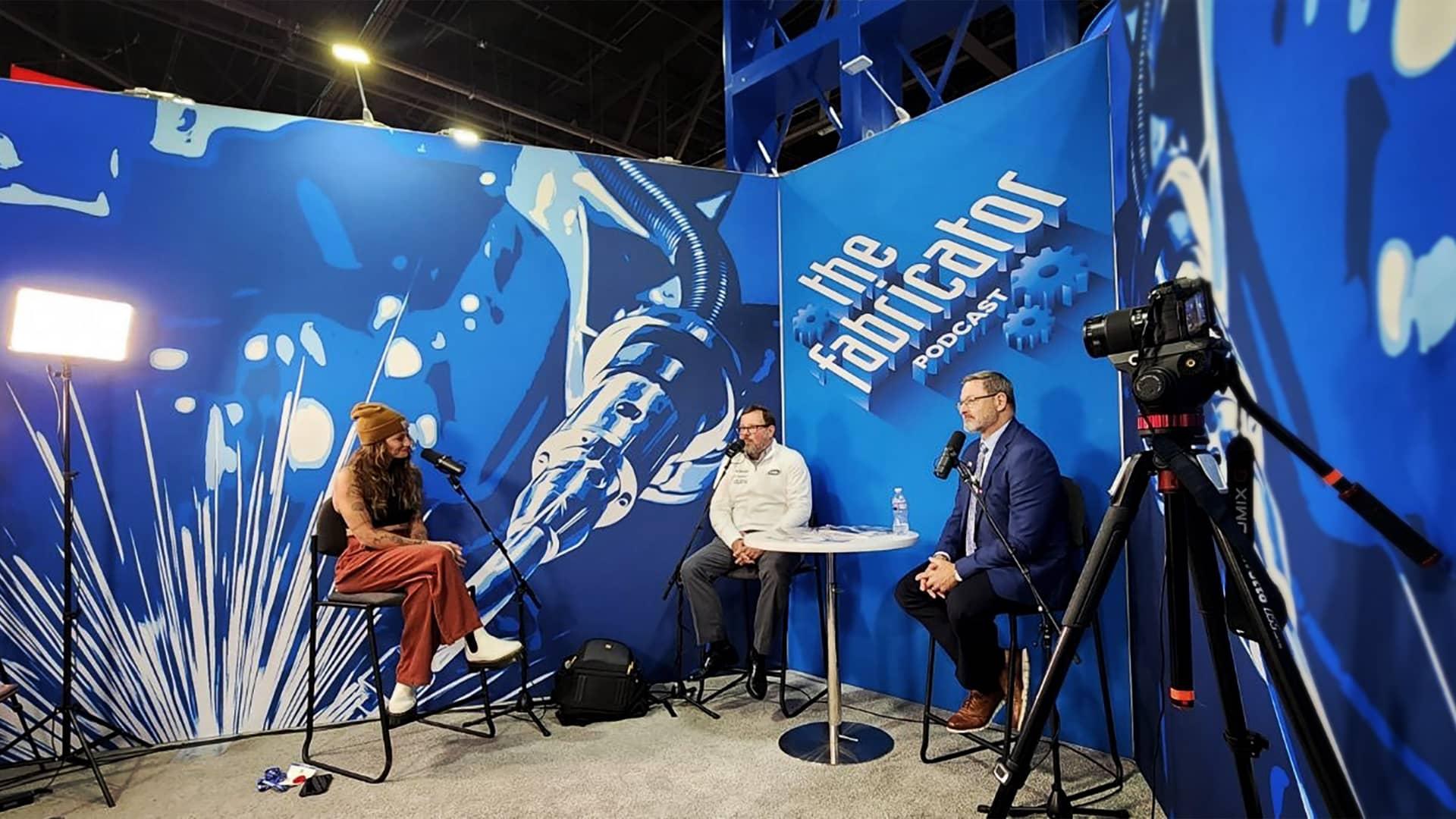
About This Podcast
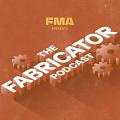
All Episodes
-
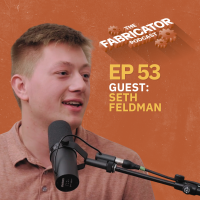 Ep. 053
Ep. 053 -
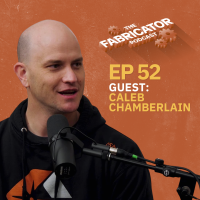 Ep. 052
Ep. 052 -
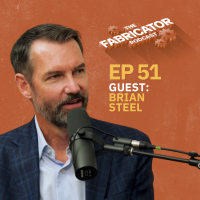 Ep. 051
Ep. 051 -
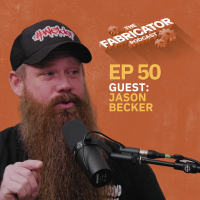 Ep. 050
Ep. 050 -
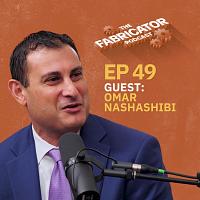 Ep. 049
Ep. 049 -
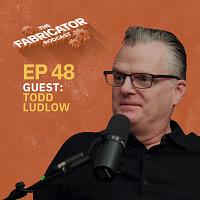 Ep. 048
Ep. 048 -
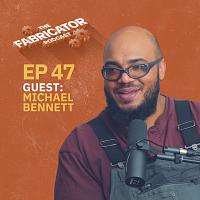 Ep. 047
Ep. 047 -
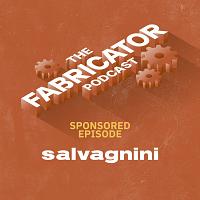 Bonus
Bonus -
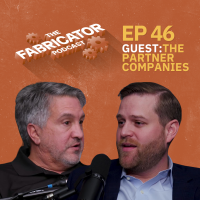 Ep. 046
Ep. 046 -
 Ep. 045
Ep. 045 -
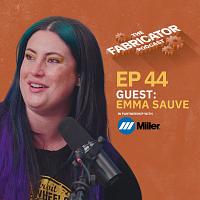 Ep. 044
Ep. 044 -
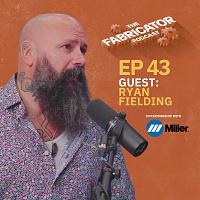 Ep. 043
Ep. 043 -
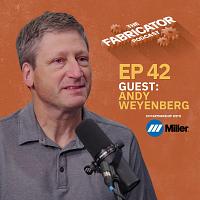 Ep. 042
Ep. 042 -
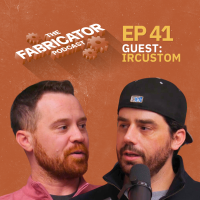 Ep. 041
Ep. 041 -
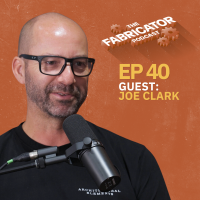 Ep. 040
Ep. 040 -
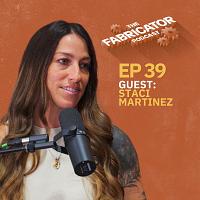 Ep. 039
Ep. 039 -
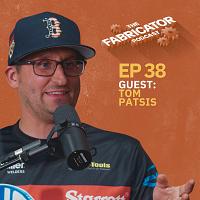 Ep. 038
Ep. 038 -
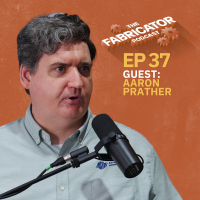 Ep. 037
Ep. 037 -
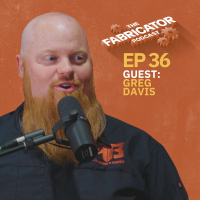 Ep. 036
Ep. 036 -
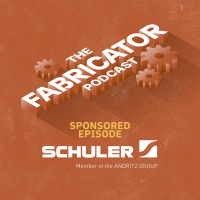 Bonus
Bonus -
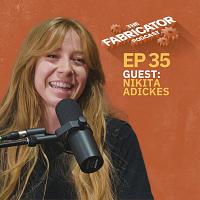 Ep. 035
Ep. 035 -
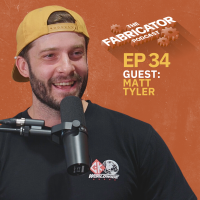 Ep. 034Fabricating doors, blending welds, and pricing jobs with Matt Tyler Designs
Ep. 034Fabricating doors, blending welds, and pricing jobs with Matt Tyler Designs -
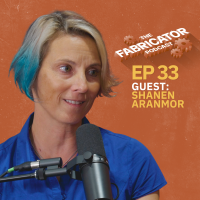 Ep. 033
Ep. 033 -
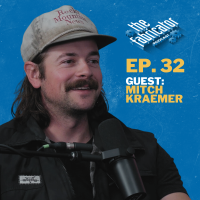 Ep. 032
Ep. 032 -
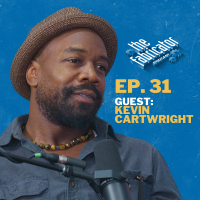 Ep. 031
Ep. 031
























